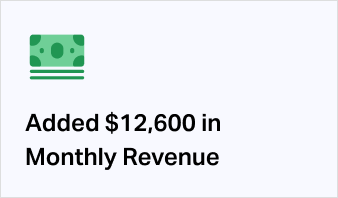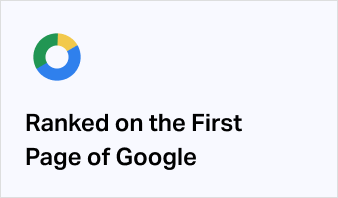
Lawn Care SEO: How to Generate Leads and Landscaping Clients Fast
As a lawn care and landscaping specialist, your work makes homes more beautiful…..
Because the financial market is undergoing a dramatic change right now. As the Baby Boomer generation evolves in their pursuit of financial advice or guidance, a lot of potential clients have questions about their finances and are waiting to be served by financial advisors.
Interestingly, over $30 trillion dollars will pass from Baby Boomers to Gen X and Gen Y over the next 30 years. That’s the largest wealth transfer ever.
Make no mistakes about it. As a financial advisor, you’ve got to understand that your new prospective clients have needs, wants, and preferences that don’t align with what advisory firms ‘usually’ offer.
It’s no longer possible for financial advisors to communicate in a way they’re ‘used’ to. If they stick to the traditional methodology which worked a decade ago, it’ll be harder to generate leads and prospects.
In today’s business environment, the internet provides an avenue for accessing information more easily.
That’s why maintaining a digital presence such as a website, social media accounts, a business listing on Google Maps, and more — is a requirement if you want to continue bringing in new clients who want financial plans or guidance.
We specialize in helping Financial Advisors drive traffic to their website from search engines.
Get a Free Consultation today.
Yes, they are!
Even though cultural shifts are increasing the demand for financial services, the challenge is that qualified financial advisors who don’t embrace digital marketing channels will be left behind. Why?
It’s because those who need financial advice are using the internet to find professionals. If you’re not where they are as an advisor, no matter your expertise and qualifications you’ll not attract these people if you ignore the internet.
Quick facts: Financial advisors generate revenue in several ways, including investment commissions, financial planning fees, insurance commissions, and other fees.
IBISWorld projected that over the next five years to 2023, the financial markets and revenue would improve significantly.
However, Advisors that want to keep pace with the changing times and serve the Baby Boomers and their heirs must fully understand how to tap into new marketing channels. I’m talking about the internet and specifically Search Engine Optimization (SEO).
Do you want to drive traffic to your Financial Advisor’s website? Book a Free Consultation today.
SEO or Search Engine Optimization is the process of improving your website to enable search engines (e.g., Google) serve it to your customers who are searching for financial advice.
Through SEO, your website will show up or rank very high on Google search results and you’ll get qualified clients to call your line, fill out your contact form, or visit your office.
Most advisors think it’s all about driving traffic to their website. But that’s just a part of it. You want the right people to visit your website — people who want financial planning and are ready to hire you.
In this in-depth article, I’ll show you the effective ways to ‘improve’ your website in the search engines so that it ranks higher in Google top 10 results — since 75% of online users never get past the first page of search results.
Let’s dive in.
Here’s the truth: A firm handshake and a well-decorated office can’t generate clients for. They’re nice but to succeed online, you need a great website that’s mobile-friendly and responsive as well. The results can be significant.
For example, Thrive Financials redesigned their website and make it mobile-friendly. Within a few weeks, the site recorded a 2.5x increase in monthly visitors and 5x increase in page views.
Bear in mind that most people in the U.S. no longer trust financial advisors. Here’s why:
The White House under President Obama estimated that Americans lose $17 billion a year to conflicts of interest among financial advisors. Wall Street investors think this figure is more considering the damage most advisors have caused people.
The truth is that you can eliminate the bottlenecks when you stop or minimize advertising on Local Magazines, TV, or Radio stations, and focus on digital marketing via search engines.
When you embrace search engines, the first thing you should do is get a professional website.
Can I be straight up with you? One of the reasons why financial advisors don’t land new clients is because their website is poorly-designed and clients are often sold inappropriate financial products, according to CFA Institute Survey released in 2017.
Let’s consider this scenario: If you need an investment advice, for example, and you’re ready to pay the fees, would you send money to an advisor with a crappy website?
I doubt.
You’ll assume they’re incompetent even if they’re in reality.
The internet is a virtual world. Most of the time, you don’t have the opportunity to meet with your clients and customers face to face.
Right before you showcase your expertise or lay out the benefits of working with you, an ideal client should be impressed/happy with your website.
Create the first impression with your website homepage. Make sure it’s relevant to your ideal clients, branded, and trustworthy. Take a look at Ellis Wealth Advisors; their website is clean, and their value proposition (i.e., taking your wealth planning to heart) is clear.
In this Mobile-First world, Google and other search engines are considering the mobile version of your website first. In other words, Google wants to see how your website displays on Smartphones, Tablets, and other mobile devices. This mobile version will then be served to desktop users.
Consequently, if your website isn’t displaying well on mobile devices regardless of their sizes, Google has no reason to index and rank your website in their front page.
If you’re considering using the internet as an advertising channel to reach people who need a financial plan, you should take your website design seriously.
The value you deliver clients MUST be clear and easy to understand by your target audience. The moment they visit your website, your USP (unique selling point) should hook them and draw them into your “Services” and “Products” pages.
Are you creating a variety of visual content? 32% of marketers say visual images are the most important form of content for their business, while 27% say blogging is. 55% of marketers are already using visual content to drive leads online.
Financial planning can be boring and exciting at the same time. How people view it differs based on their skills, experiences, and expectations. The quickest way to appeal to clients who want financial solutions is to create visual content.
Written content such as blog posts, articles, and tweets may not drive your message home. Remember that a brand story isn’t verbal but visual. With that in mind, you’ll agree with me that it’s a lot easier to tell your story by having visually-appealing content.
For example, you can get other financial advisor services website and firms to mention your website and link to it if you have high-quality infographics and videos. HubSpot conducted a survey and found that 54% of clients preferred to see more video content from a brand or business they support.
Don’t make your topic more boring than it already is. You can approach a boring financial topic such as investing, differently. Show in graphs, charts, or illustrations on how to invest in the stock market, for example.
When you start sharing visual content consistently, your website will gain more trusted links and Google will push your site ranking to the top of their organic listings.
Eventually, your website will rank above its competitors and start to generate leads for your business.
Often times, clients are looking for financial advisors near them or in their locality. They want to visit the office to see the advisor in person.
Google is aware that when someone enters this term “best financial advisor in Texas” on Google, the person is obviously looking for a professional in Texas or nearby states or cities.
That’s what local search is all about. 39% of local searches start with a search engine.
If you have a physical location (I’m sure you do), then Google wants you to list your business on their Google My Business (GMB) platform. It’s 100% free but you’re required to claim and verify your business.
What do you stand to gain? Well, once you register your business online, Google will then show it in their map which appears in the search results like this:
When your business is successfully registered on GMB platform, you’ll generate more traffic to your website and leads to your business. A lot of people will call you to know more about their finances.
Here are the basic steps to register your business on GMB:
If you find your business already listed, great. Simply select it to continue or Add your business and follow the simple instructions.
Make sure your business Name, Address, and Phone number (N.A.P.) are clear and consistent because that’s what’s required to verify your business listing.
When writing your address, choose whether to spell out your “S-t-r-e-e-t or Str., the choice is yours. But whichever format you use, stick to it.
Note: As a financial advisor, your category is definitely financial solutions or financial services.
At this point, Google will prompt you to verify that your business is located in that address you earlier listed. This isn’t an instant verification. You’d wait 1-2 weeks for a postcard with a verification PIN to arrive.
Once you receive it, log into your Google My Business account and enter your PIN:
Done. Your business has been successfully listed and verified online. Google is now ready to start ranking your website in their Google Map packs and local search results.
But it’s not that easy. You still have a few things to do. You need local citations from local directories. And a lot more but be careful because there are laws that govern how financial advisors should promote their services.
For example, a local coffee shop could encourage customers to write reviews about their products. But it’s no so with Financial services. Reviews are against the rules for financial advisors.
Since the opportunities to improve local search via reviews are not open to financial advisors, what options are available to them which can be implemented right away?
Targeting local keywords is a reliable way to draw potential clients in.
A lot of Baby Boomers who need financial services aren’t interested in hiring a financial advisor? The reason is simple: they think that financial advisors are very pushy?
Are you a pushy salesperson? If you’re too pushy, it’s a sign that you’re out to rip people off. They’ll assume you don’t care about them at all.
Unfortunately, most financial advisors will continue to be pushy because that’s what they have been taught. But there’s a better way.
Stop pushing your way to convince local clients, let them come to you.
In other words, instead of shouting at the top of your voice hoping they’ll hire you, it’s better to optimize your website for what they’re looking for.
Target local keywords related to financial services. That way, when your ideal clients find information using Google search engine, your website will show up.
First, we need to find these local keywords. Let’s use Ubersuggest.org to make it easier.
Simply enter your main keyword (e.g., financial advisor) in the search box and click “Search.”
You’ll see the basic analysis of the keyword “financial advisor.” Even though it has over 90,000 searches per month (which means over 90k potential clients are searching for it), you can’t rank for that keyword.
It’s competitive. The “SEO Difficulty” is 67. SEO Difficulty is simply a measure of how difficult it is to rank for that keyword.
If your website is new and you’re just getting started in this financial market, stay away from “financial advisor” keyword. I’ll show you what to do.
Scroll down the results you see on Ubersuggest tool and you’ll see other related keywords:
As you can see, there are keywords with less competition. For example:
Financial advisor near me is searched 14,800 times per month and it has 29 SEO difficulty score.
Which means you can target “financial advisor near me” on your web page, create useful content, give it time, and you’ll start ranking in Google first page — both in the map and organic listings.
To find other keywords to target on your pages, click the “VIEW ALL KEYWORD IDEAS” tab.
Some other keywords that are less competitive are:
If you target and optimize your website pages with these keywords, you’d have a better chance of ranking on Google first page.
Here’s a good example of a Financial Advisor website that targets a less-competitive keyword in their page title.
By targeting local keywords, you’re positioning your website and business as a trusted portal that local clients can rely on. While you’re targeting local keywords on your pages and posts, here’s the next step to take:
If you only sell financial services to make commissions, I can boldly say you don’t have the client’s best interest at heart. This might sound too harsh but it’s the truth nonetheless.
There’s a lot of competition for “on-page SEO” because the financial and technology markets are beginning to understand how important it is — if they must rank their websites on Google.
Offering financial services is all about connecting with people at a deeper level. You want to become their ‘hope’ in this changing financial times.
That’s why implementing On-Page SEO techniques is important.
Before we move on, there are two parts to SEO:
Basically, On-Page SEO is all about the activities and techniques that you implement on your website. You do it within your domain.
Off-Page SEO on the other hand covers the things you do outside of your website. This involves link building, content promotion, etc.
When it comes to satisfying your clients and building relationships with them, you can only do it successfully through On-page practices.
In other words, you want to create experiences on your website that will help those seeking financial advice to succeed.
With on-page optimization, there are key elements or aspects of your website to focus on. Let’s consider a few of them:
i). Write relevant title tags and meta descriptions: If you have your keywords ready, make sure you use them in your title tags and meta descriptions. These are the sections that show up in the search engine when your prospects search for financial services in Google.
If your website is hosted on WordPress, then you can install the Yoast SEO plugin. You can control the content and keywords that appear in your descriptions and title tags if you use the plugin.
ii). Target ultra-specific keywords: As I mentioned earlier, not all keywords are worth targeting on your website pages especially when you’re just starting out and has little or no connection in the financial market.
So instead of targeting generic keywords such as financial services, make it specific to a group of people. For example:
Each of these keywords is grouped under “long-tail keywords” because they’re specific, easy to rank for, and from off the bat, you know exactly what the searcher is looking for.
iii). Interlink your pages: Another important aspect of On-page SEO is internal linking. As the term implies, internal linking is all about linking out to your inner pages. You can link from your homepage to the inner pages to pass link juice.
Apart from the homepage, you can also interlink your pages. If you’re creating a blog post about “financial challenges”, for example, you can link to a post you published previously that covers “steps to financial planning.” You get the idea.
Always link out to relevant pages on your site. Also, the anchor text you use is important. It’s to be relevant in some way. It doesn’t have to be specific to a financial advisor, but it can be close.
Bear in mind that ‘content’ is a pivotal aspect of On-page SEO. That’s why I’ve dedicated this page to show you exactly how to create interesting and comprehensive content.
There’s a popular technique for creating highly-useful content that will beat your competitors in the organic search results.
It’s known as “The Skyscraper Technique.”
It’s actually simple and easy to implement in 3 steps:
Let’s assume you want to rank in Google number #1 position for the keyword “financial planning for startups.”
All you have to do is enter that keyword into Google search engine and keep an eye on the top 5 results.
Next, visit each of these top 5 websites and analyze their content. Keep an eye on:
After analyzing the pages, I discovered that the top 5 pages in Google have:
The odds aren’t stacked up against your site if it’s new. Provided you can control 3 factors out of the 4 analyzed above, you’re good to go.
According to the Content Marketing Institute, “90% of businesses are already using content marketing to generate inbound leads.”
This is where you pull the curtain and go all in to create useful, interesting, and well-researched content. First, research is critical if you must produce better content than your competitors.
So find financial planning books, financial planning templates, watch videos, watch to TEDx presentations, download presentations, and listen to audiobooks. Get as many facts that the top 5 websites don’t have.
Once you have all your information, go on with the content. Make your content clearer, more relevant and focus on the keyword “financial planning for startups.”
Your title tag must begin with that keyword. Here are fresh titles that will work:
Create your articles and make it easy to read. Use lots of subheadings and bullet points to make your content scannable.
Include lots of screenshots and illustrations, share case studies and statistics to show how other startups plan their finances, etc. Here’s a visually-appealing content from Content Marketing Institute.
Above all, go beyond the limit.
Increase your content length. Since the top 5 results have an average of 2,000 words, I’m sure you know what to do. Cover more sub-topics and ‘deliberately’ increase your content length to 3,000, 4,000, or even 5,000 words.
The longer your content, in most cases, the higher your ranking, according to a research by Brian Dean.
To make it easier to consume, provide an option for readers to download the content and read on their mobile devices or record an audio version of the post so readers can listen to it while driving.
If you don’t have a relevant video that you recorded yourself, go to YouTube, get a relevant video, copy the embed code and share it on your content. This will increase the user’s time on your site. And Google is always looking out for that signal.
The essence of promoting your content is to give it that initial boost online. If your content is better than the top 5, it’s only a matter of time — Google will reward you with search traffic and rankings.
But you must make the move.
By promoting your content on social media networks, linking out to it from guest posts, mentioning it on Podcasts, and using email outreach to notify other financial bloggers and experts about your comprehensive content, you’ll generate traffic to your website and links back to your pages.
Don’t just create useful content and expect people to find it. It could happen by sheer luck but that’s not the way search engine optimization (SEO) works. There’s always room for promoting your content.
Each time I talk to people who are struggling with their finances, I always recommend they get a financial advisor to assist them.
But most of these people are skeptical. Some don’t want a stranger to manage their money while some others don’t believe a financial advisor truly has a good advice for them.
So what are you going to do to win these people and help them grow their wealth?
Improve your online credibility and reputation. Remember that people are moved by what they see and hear. If you’re credible enough, your satisfied clients will refer their friends, family members, and colleagues to you. It’s that simple.
Make sure you build social media presence. Complete your business social profiles on Facebook, Twitter, LinkedIn, Instagram, among others.
Frequent Quora and answer questions related to financial planning, financial advice, and the like.
If you build online credibility via social media and search engines, you’ll no longer struggle to land clients. More importantly, you’ll be working with clients who will appreciate your expertise and are willing to pay for your services.
We specialize in helping Financial Advisors drive traffic to their website from search engines.


CEO, Keever SEO

As a lawn care and landscaping specialist, your work makes homes more beautiful…..

The Step-By-Step Guide To Real Estate SEO By KeeverSEO Team3 August 2023 . 2 min read Share this post Request

Insurance website SEO can be tricky.
But don’t worry. I’ll show you EXACTLY how…
©2025 Keever SEO. All rights reserved.